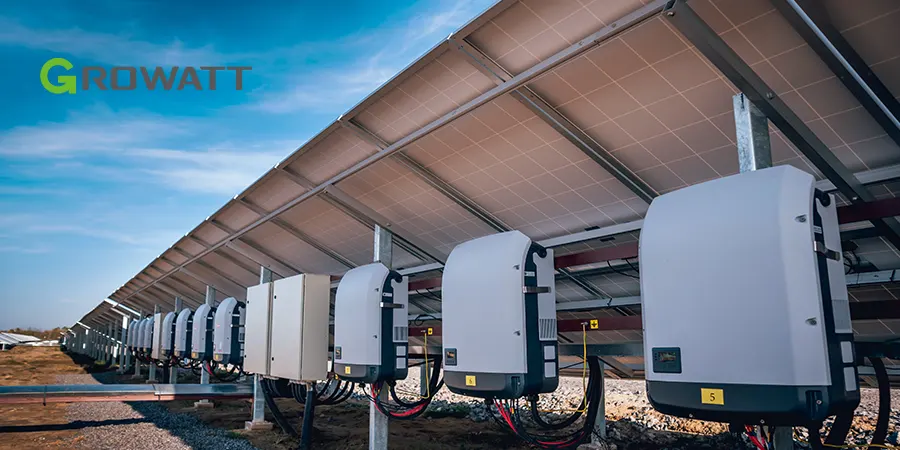Are you aware of solar panels? Do you know the importance of solar inverters in solar panels and why they are used?A solar panel, also known as a PV panel, is responsible for storing and collecting sunlight and later converting the sunlight into electric current. You will see solar panels being installed on the rooftops for direct sunlight. These solar panels have inverters responsible for converting the electricity from direct to alternating current. Hence, solar panels need an inverter.
The electricity that is obtained from the sunlight by the panels cannot be used by the grids, and this is when inverters come into action. Now that we understand the importance of solar inverters, let us know why solar panels need an inverter.
Before going deeper to understand the importance of solar panels, you can visit the official website of Growatt and see the Growatt inverters for sale, especially the Growatt off grid inverters in dubai, which can be of great use if you live there.
Solar Panels and The Need for Inverters
It is a frequently asked question today: can I install a solar panel without an inverter? Apart from what we mentioned above regarding why solar panels need an inverter, there is another point to clarify.
Solar panels can work without an inverter, but you cannot convert the DC or direct current to AC alternating current, which permits the power for load alteration. Hence, an inverter is crucial for a solar panel, and solar panels need an inverter.
The solar panels with inverters release you from the burden of checking them daily. All you need to do is check it periodically to see if everything is okay with it. If you are thinking about its durability and want to know how long solar inverters last, then a solar panel can provide 25 to 30 years of service.
All you need to check is to see whether there are any loose wires or unusual wear and tear, or else the solar inverter will work for you to hustle freely.
Inverters are used a lot today because they are responsible for converting direct electricity, and we use them even in our home appliances as soon as the main supply of electricity is cut off.
You will not need consecutive checking and maintenance only if you get it from a valid and trustworthy supplier. You can check the Growatt inverters for sale and look at the growatt off grid inverter price in dubai. If you have further questions regarding ordering, contact our experts, who will give you all the details you are looking for till you get the best solar panels with inverters you are looking for.
Maximizing Energy Production
We can produce the cleanest electricity by maximizing the power of solar panels. Solar inverters can make this for us. This kind of solar panels can produce more pure sine waves, which ensure the efficient function of solar panels.
Do Solar panels Inverters Need a Battery?
Solar panels with inverter and battery work well, but this is what you need to know. Those who opt for a solar inverter always come up with these intriguing questions. Growatt has the best hybrid inverters that do not require batteries and can easily convert solar energy to alternating current only with the help of the hybrid inverter.
Apart from these, inverters can draw power from the 12 Volt battery, but it will be an expense because you will have to change the battery repeatedly as soon as it drains out. So, the best alternative is the hybrid inverter.
To clarify, a solar panel needs an inventor but does not necessarily need a battery as long as the hybrid type is available.
Now that we know why you need an inverter for solar panels and how long solar inverters last, let us throw some light on the other details, such as the upgrading system and the cost of it.
Can solar panels be upgraded?
By upgrading if we are planning to upgrade the size of the rooftop solar system, then you should know that four possible options can do it. Either you need to add a solar panel to your inverter, you need to add panels along with micro inverters, you can add a solar power system, and finally, you can remove the old system that it has and replace it with a new one. This is how you can upgrade your existing solar inverters.
Solar Panel Inverter Price
Knowing the price can be pretty challenging as different suppliers in different countries sell solar panel inverters differently. But to give you an approximate cost, it can range from $1000 to $1500.
The cost is for an average-sized panel inverter. If you want to know the exact cost of the solar panel inverters, contact us now, and our experts will guide you further and tell you the exact price based on your need and size preference.
We at Growatt are just a call away from you to give more information about Growatt Hybrid inverter price. Be in touch with us.





